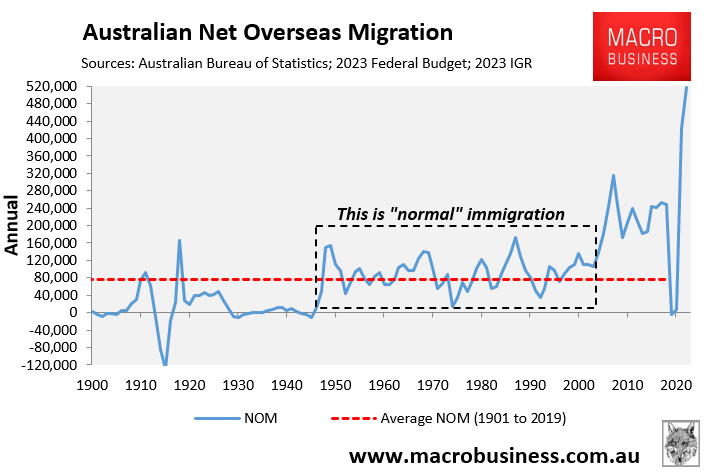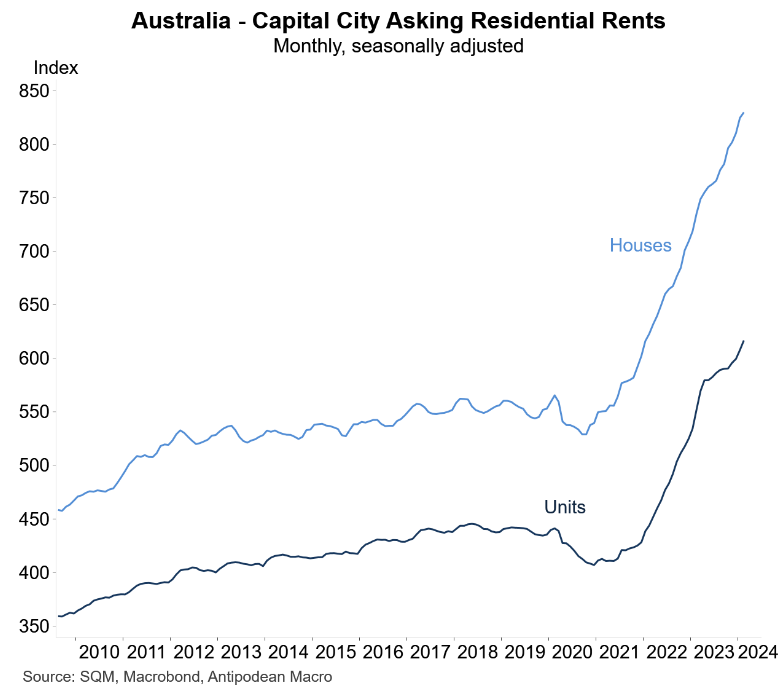In her press conference on Tuesday, after the Reserve Bank of Australia (RBA) decided on interest rates, Governor Michele Bullock admitted that Australia’s record immigration has helped lift inflation by ensuring that aggregate demand has expanded faster than supply:
A question from the audience:
We’ve had four quarters of slowing GDP growth. So, if GDP does turn negative, would the RBA have to consider a rate cut?
Governor Bullock:
We’ve had a situation where aggregate demand has been above aggregate supply. So, the demand for goods and services in the economy has been above the ability of the economy to provide it.
And the big signal there has been in services inflation…
A question from the audience:
Given the RBA has described household consumption and dwelling investment as weak, I’m curious about what is still holding inflation up above that 2%-3% target, and how does that affect where the bank thinks or sees neutral interest rates being?
Governor Bullock:
Back to the point I made earlier that growth is weak, but the level is still high. It comes back a little bit to the point made that aggregate demand because of population growth has been elevated.
What we’re observing now is that aggregate demand is slowing and it’s coming back more into line with supply. And that’s what we’d expect with restrictive monetary policy.
Governor Bullock also effectively blamed excessive population growth via net overseas migration for driving up house prices and rents:
Governor Bullock:
We were surprised when they [house prices] started rising again. Quite frankly, and I think everyone was.
The bottom line with housing prices, though, is that it’s really about supply and demand and this this goes for housing in general, whether it’s rental accommodation or purchasing.
It really comes down to supply and demand.
We are suffering from a situation where demand for housing is higher than the supply of housing.
The above testimony is further evidence that the Albanese government has contributed directly to Australia’s inflation via its record immigration program:

This extreme immigration has overwhelmed the supply-side of the economy, especially the housing market, where rents have soared:

This higher inflation has then forced the RBA to keep rates higher for longer, which is punishing mortgage holders.

